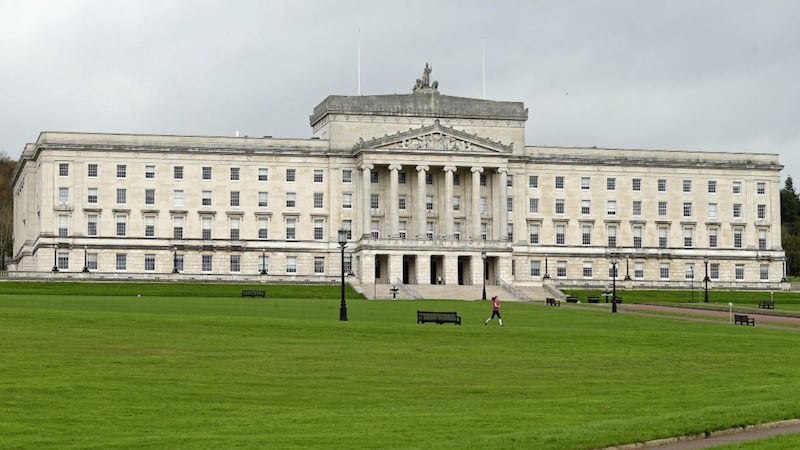We tend to be rather selective in commemorating anniversaries in this country. While we appear to love battles, wars and rebellions, we generally ignore events of social or economic importance.
For example, we commemorate every World War I battle from the Somme to Passchendaele, where Irishmen were slaughtered fighting for the British Empire, which had earlier caused the deaths of 29 million Indians through famine.
But we generally skip anniversaries such as the 1932 Belfast relief protests when the Falls and the Shankill united against what would now be called Tory cuts. Dying for an empire was good. Fighting against empire-imposed poverty was unimportant.
True to form, this month marks another missed commemoration. An event in November 1942 transformed society here and ultimately led to the collapse of the old Stormont. Although it occurred during World War II, no one died and no one lays wreaths to commemorate it.
November marks the anniversary of the Beveridge Report. "The what report?" you ask. William Beveridge laid his report before parliament 75 years ago this month. Good for him, you say, what was in it?
It laid the foundations for the welfare state. Beveridge identified what he called five evil giants in society: squalor, ignorance, want, idleness and disease. Today we tend to refer to these as housing, education, poverty, unemployment and health.
He argued that the state should care for its citizens "from the cradle to the grave", a philosophy which was turned into law when the war ended. Today the state is turning that philosophy on its head.
For the first time, children over 11 received free secondary education and working class children could progress to university with government grants. (Not loans, grants.) This educated generation founded the civil rights movement and transformed the north, but no one remembers Beveridge.
This week, 80 school principals said that the financial mess which Stormont created will damage the learning opportunities for the current and future generations of pupils. (The argument that this is Westminster's fault is weak, because none of the agreements in the past 20 years included a demand from local parties to defend the welfare state.)
Before Beveridge, 35 per cent of housing here was unfit for human habitation. From 1945 the Housing Trust oversaw the building of 100,000 homes. Although local councils also built new houses, many were allocated on the basis of sectarian discrimination until the civil rights movement. Today the Housing Executive has almost 40,000 households on its waiting list for accommodation.
In health, the post-war period saw free prescriptions, improved hospitals and free consultations with doctors. We moved from having the highest death rate in the UK in 1939 to the lowest in 1962. But today one quarter of a million people here are on the waiting list for a first outpatient appointment. In all the talks since Stormont collapsed, no one mentioned health.
The welfare state introduced family allowances, unemployment benefits, national assistance and maternity benefits and the government nationalised coalmines, railways, electricity and the Bank of England.
Now Stormont pays a private company, Capita, to reduce welfare benefits to the disabled. A quarter of a million of our fellow citizens here, including one in four children, are in poverty.
Meanwhile our ruler, the Queen, has an offshore account which, among other areas, has investments in a chain of drinks outlets and Brighthouse, a retailer accused in parliament of exploiting vulnerable people with interest rates of up to 94 per cent. Last month it was ordered to pay £15 million in compensation to 249,000 customers. Welfare state, how are you?
There was more money in this week's budget for the Strategic Investment Fund, a sectarian slush fund for political patronage rather than universal welfare. Beveridge's five evil giants are alive and well here and thriving on a diet of sectarianism.
What the cenotaphs do not tell us is that after WWI ended, those who fought for the freedom of brave little Belgium were asked to turn their guns on insolent little Ireland and, if necessary, on those in Britain protesting against the grinding poverty of economic recession.
The welfare state was planned to head off a similar threat of political unrest after WWII. At the age of 75 it is now dying, but there is no political unrest, because the major political parties here support the economic policies which are killing it.
Maybe we are right not to commemorate Beveridge. It would be an insult to him and it would be an insult to those who are suffering because his ideals have been sacrificed on the altar of greed.









